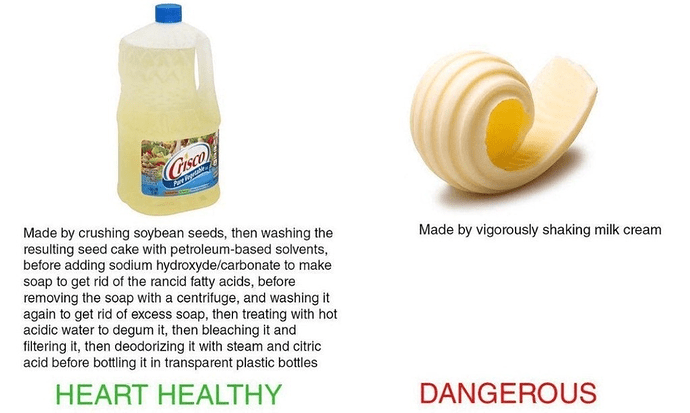This is debatable, and I will debate it. Natural seed oils are usually healthy AND a good source of the essential fats. We have to have both Omega 3 and Omega 6 PUFAs - or we will eventually die. Our brains are largely comprised of Omega 3s… which I will admit are best obtained from animal sources, but can be obtained from Omega 3 ALA fat from plants, and for this reason this fat alone is technically considered the only essential fat. Plant and animal PUFA fats come with natural antioxidants because nature seeks to protect these easily oxidized fats from becoming oxidized with these antioxidants. So, I argue that getting these oils naturally from plants is healthy and safe. However, “seed oils” in the form bought from stores are far from natural, and have become oxidized even before you purchase them. I consider them a man-made fat. Cooking with them really is not a good idea. Virgin coconut oil is an exception because it is not refined and concentrated so still is full of polyphenols. It is also mostly saturated fat. It is also comprised of about 15% of MCT saturated fats, which I believe are quite desirable for several reasons, and can be considered essential for human babies. This idea that no good fats can come from plants is false. Unfortunately, the seed oil industry was able to successfully promote itself after WWII, and replaced the largely healthy coconut oil industry in the states. That said, I stay away from refined coconut oil, refined avocado oil, etc.
However, not even the refined seed oils are the worst fats. The absolute worst fats are hydrogenated fats - and these can be animal fats to a limited extent if overcooked.


 It’s tasty, after all though it depends on the fat and the person. I strongly dislike tallow and wouldn’t eat it without the meat.
It’s tasty, after all though it depends on the fat and the person. I strongly dislike tallow and wouldn’t eat it without the meat.